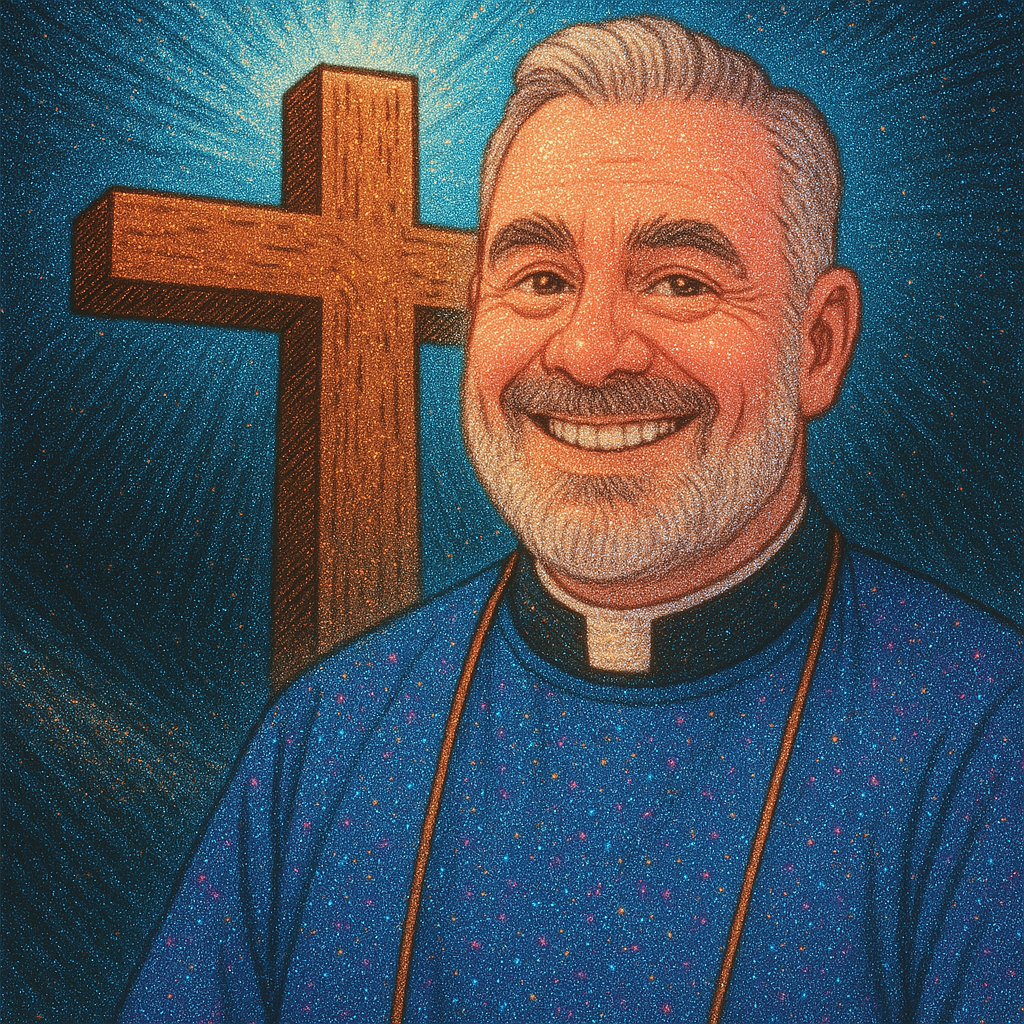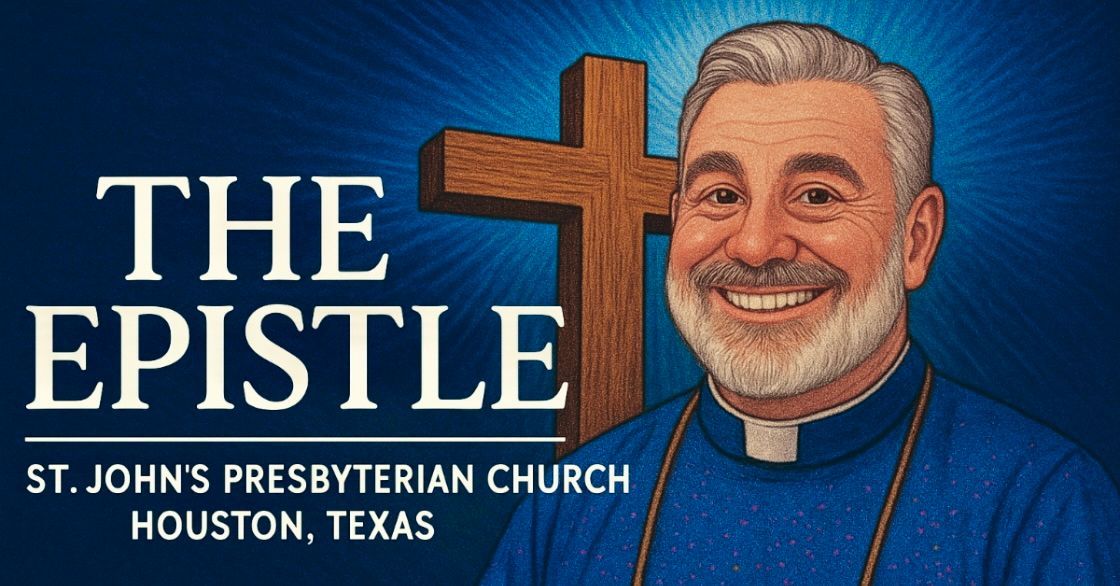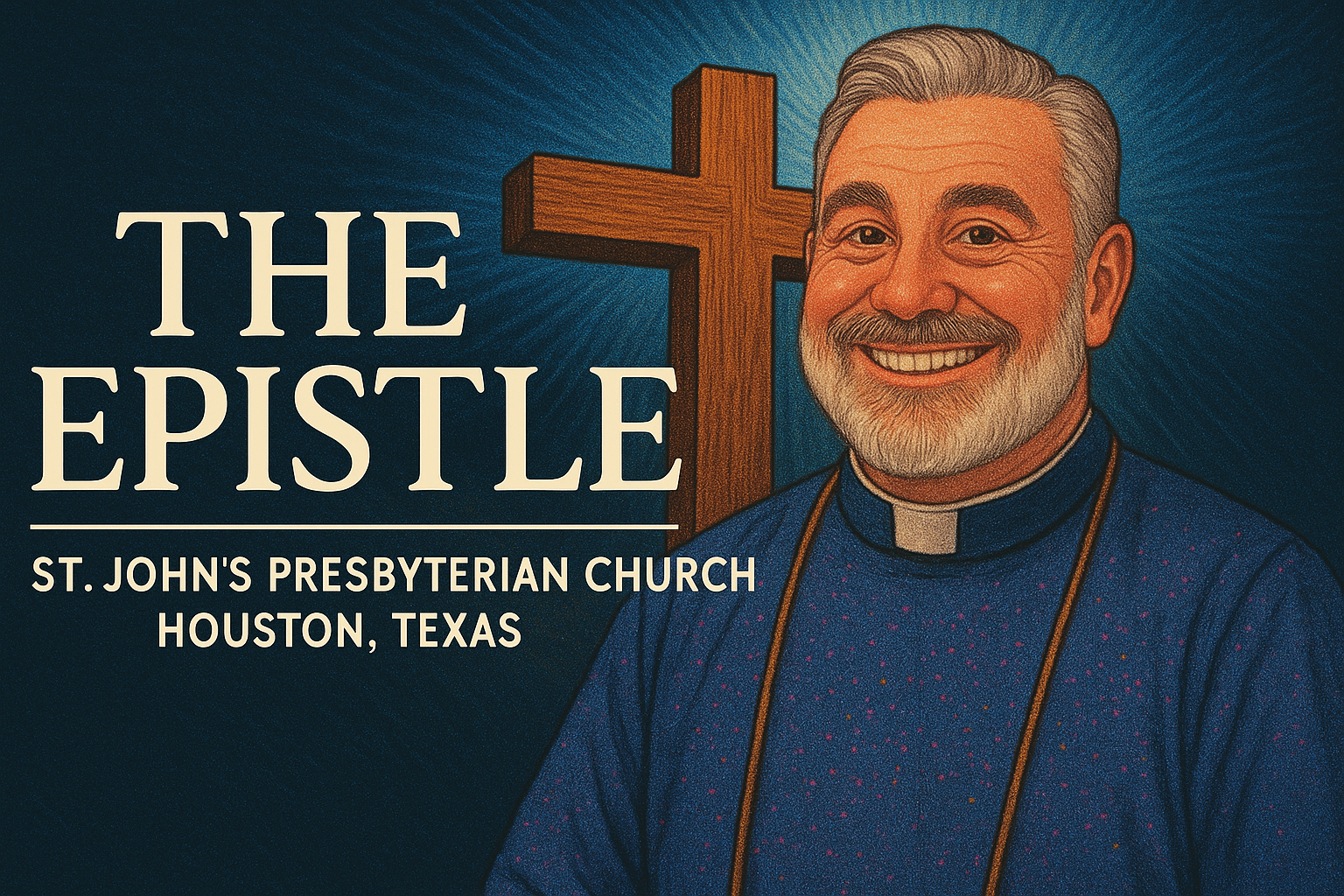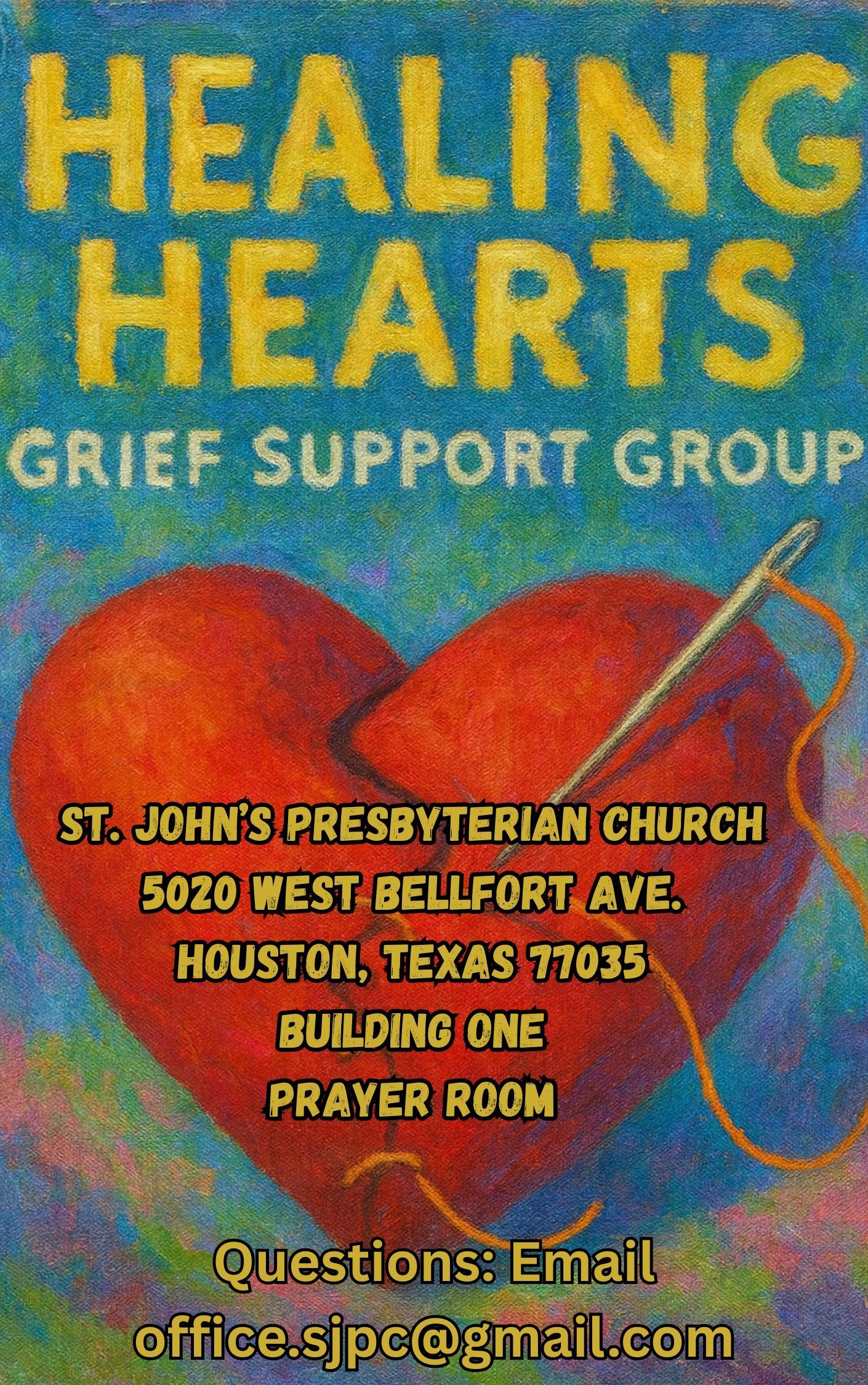What Does Presbyterian Church Believe and Why It Matters
Someone asked me last week what makes Presbyterian churches different from the Baptist church down the street or the Methodist church across town. Fair question. We all worship Jesus, read the same Bible, and sing many of the same hymns. So what actually sets us apart?
Here's what I told her: If you want to understand Presbyterianism, don't start with our worship style or our building architecture. Start with what we believe about God and how that shapes everything else we do.
Where Presbyterian Beliefs Come From
The Presbyterian Church traces back to the Protestant Reformation in the 1500s. A French theologian named John Calvin and a Scottish reformer named John Knox led the charge to reform Christianity based on what Scripture actually teaches, not what tradition had added over the centuries.
They weren't trying to start something new. They were trying to get back to something old: the church as the Bible describes it. That impulse still drives us today at St. John's Presbyterian here in Houston.
The word "Presbyterian" comes from the Greek word
presbuteros, which means "elder." Right there in the name, you see what we value: leadership by elders chosen from within the congregation, not handed down from bishops in distant cities. This matters because it means the people who lead your church actually know you.
What Does Presbyterian Church Believe
About God
Let me give you the heart of Presbyterian theology in plain English.
We believe God is sovereign. That means God is in charge, not us. Everything that happens falls within God's plan and purpose, even when we can't see how the pieces fit together. This isn't fatalism or passivity. It's trust. When cancer hits or the job disappears or the marriage crumbles, we don't wonder if God lost control. We know He hasn't.
Romans 8:28 puts it this way: "And we know that in all things God works for the good of those who love him, who have been called according to his purpose." Notice it says "all things," not "some things" or "the things that make sense to us."
I've watched this truth sustain people at St. John's through impossible circumstances. Margaret lost her husband of 52 years last spring. At his funeral, she stood up and said, "God is good, and God is in control. I don't understand why Robert had to go, but I trust the One who does." That's Presbyterian theology lived out in real life.
We also believe in grace alone, faith alone, Scripture alone, Christ alone, and glory to God alone. Reformed theologians call these the "Five Solas," and they're not just academic talking points. They're lifelines.
Grace alone means we can't earn God's favor. No amount of church attendance, volunteer work, or moral improvement will make God love us more than He already does. Ephesians 2:8-9 settles it: "For it is by grace you have been saved, through faith, and this is not from yourselves, it is the gift of God, not by works, so that no one can boast."
Faith alone means trusting Jesus is enough. You don't need to add rituals or rules or religious credentials to your faith. Simple trust in Christ saves you completely.
Scripture alone means the Bible is our final authority. Not the pastor's opinion, not church tradition, not popular culture. When we need to know what God thinks about something, we open the Bible. At St. John's, this shapes how we make decisions about everything from worship music to mission priorities.
Christ alone means Jesus is the only way to God. This sounds narrow until you realize how wide God's grace actually is. Anyone who comes to Christ finds acceptance, no matter what they've done or where they've been.
Glory to God alone means we exist to honor God, not ourselves. This changes how we do church. We're not here to entertain you or make you feel good about yourself. We're here to point you toward the God who made you and loves you and deserves your whole life.
How Presbyterian Churches Are Organized
Here's where Presbyterian church government gets practical. We're led by elders who are elected by the congregation. These aren't clergy who went to seminary. They're regular people who love Jesus and serve His church.
At St. John's, our elders include a retired teacher, an accountant, a nurse, a small business owner, and a software engineer. They shepherd the congregation alongside me, making decisions together about budget, staff, programs, and discipline when needed.
This system comes straight from the New Testament. Acts 14:23 tells us Paul and Barnabas "appointed elders for them in each church." 1 Peter 5:1-2 gives instructions to elders: "Be shepherds of God's flock that is under your care, watching over them."
The Session is what we call our board of elders. They meet monthly to pray, discuss church matters, and make decisions. No one person controls everything, which protects against both corruption and foolishness. Good leadership requires multiple voices and shared wisdom.
Elders serve limited terms, then rotate off to let new leaders step up. This keeps fresh perspectives flowing and prevents burnout. It also means you might serve as an elder someday if you join a Presbyterian church. Leadership isn't restricted to professionals.
Beyond the local church, Presbyterians connect in presbyteries, regional groups of churches that provide accountability and support. Then come synods (larger regions) and the General Assembly (the whole denomination). This connectional system means we're not isolated congregations doing whatever we want. We're part of something bigger.
The Westminster Confession:
Our Theological Foundation
for Presbyterian Beliefs
Most Presbyterian churches subscribe to the Westminster Confession of Faith, written in 1646 by English and Scottish theologians. It's a detailed explanation of what the Bible teaches about God, humanity, salvation, the church, and the end times.
You don't need to memorize the Westminster Confession to be Presbyterian. But understanding its core convictions helps you grasp what makes us tick.
The Confession starts with Scripture. Chapter 1 states: "The whole counsel of God concerning all things necessary for His own glory, man's salvation, faith and life, is either expressly set down in Scripture, or by good and necessary consequence may be deduced from Scripture."
Translation: If something is essential for following Jesus, you can find it in the Bible. We don't need secret knowledge or special revelations. We need to read, study, and obey what God has already given us.
The Confession also addresses predestination and election, doctrines that confuse many people. Here's the simple version: God chose to save some people before the foundation of the world. He did this based on His own good pleasure, not because certain people deserved it more than others.
Does this mean God creates some people just to send them to hell? No. It means God, in His mercy, chose to save sinners who deserved judgment. Everyone who wants to come to Christ can come. John 6:37 promises, "Whoever comes to me I will never drive away."
At St. John's, we don't spend Sunday mornings debating predestination. But we do preach grace. We tell people they're saved by God's initiative, not their own effort. This produces humility and gratitude instead of pride and anxiety.
The Westminster Shorter Catechism, a teaching tool based on the Confession, asks: "What is the chief end of man?" Answer: "Man's chief end is to glorify God, and to enjoy Him forever."
That question and answer capture Presbyterian spirituality. We exist for God's glory, and we find our deepest joy in knowing Him. Success isn't measured by comfort, status, or achievement. It's measured by how well we reflect God's character and fulfill His purposes.
Baptist vs Presbyterian:
How Presbyterian Church USA Near Me
Differs From Other Denominations
People often ask how we're different from Baptists, Methodists, Lutherans, or other Protestant traditions. Here are the main distinctions.
Baptism: Presbyterians baptize infants and adults. Baptists baptize believers only. We see baptism as a sign of God's covenant promise, similar to circumcision in the Old Testament. Just as God included children in His covenant with Israel, He includes them in His covenant with the church.
This doesn't mean baptized babies automatically go to heaven. It means they're part of the covenant community and should be raised in the faith. When they're old enough, they'll confirm the vows their parents made on their behalf. We call this confirmation.
Church government: Baptists emphasize local church autonomy. Each congregation governs itself without outside interference. Presbyterians connect churches through presbyteries and higher governing bodies. We believe accountability and mutual support matter.
Methodists use an episcopal system with bishops who oversee multiple churches. Presbyterians have no bishops, just elders who serve as equals. This flattens the hierarchy and distributes authority.
Communion: Presbyterians practice open communion, welcoming all baptized believers to the table. Some Baptist churches restrict communion to their own members. We see the Lord's Supper as a means of grace for all Christians, not a reward for denominational loyalty.
Worship style: This varies widely among Presbyterian churches. Some are traditional with organ music and hymns. Others are contemporary with guitars and projection screens. At St. John's, we lean traditional. We have a chancel choir, classical music during the prelude, and hymns you can actually sing without a degree in music theory.
Our worship is ordered, following a liturgy that moves from confession to assurance to thanksgiving to sending. This structure teaches theology. You start by acknowledging your sin, receive forgiveness through Christ, respond with praise, and go out to serve. The order matters because it shapes how you think about God and yourself.
Theology: Presbyterians hold to Reformed theology, emphasizing God's sovereignty and grace. Methodists stress human free will and the possibility of losing salvation. Lutherans focus on the sacraments as primary means of grace. Pentecostals emphasize the gifts of the Holy Spirit and experiential faith.
These differences aren't trivial, but they're not reasons to treat each other as enemies. We're all trying to follow Jesus faithfully. We just emphasize different aspects of Scripture based on our historical traditions and theological convictions.
What Presbyterian Beliefs and Practices
Looks Like at St. John's Houston
Theology matters, but only if it changes how you live. Let me show you what Presbyterian convictions look like in practice at our church.
We take Scripture seriously. Every sermon at St. John's unpacks a biblical text. I don't get up on Sunday morning to share my opinions about current events or offer life advice pulled from self-help books. I open God's Word, explain what it means, and show how it applies to your life today.
Our Sunday School classes study books of the Bible, not popular Christian bestsellers. Don't get me wrong, those books can be helpful. But we believe the Bible itself is more transformative than anyone's commentary on it.
We practice elder leadership. When you join St. John's, you're not joining a church run by the pastor. You're joining a church governed by elders who know you, pray for you, and make decisions for the congregation's good.
This past year, our Session wrestled with how to allocate mission dollars between local and international needs. We had passionate advocates on both sides. After prayer, discussion, and careful listening, we found a balance that honors both priorities. No one got everything they wanted, but everyone felt heard.
That's Presbyterian process. Slower than one person deciding, but wiser. More frustrating at times, but more faithful.
We emphasize discipleship over programs. Some churches measure success by attendance numbers or the size of their budget. We measure success by changed lives and kingdom impact.
Ann grew up Baptist and spent most of her adult life thinking mission meant going to another country. Then she retired and started volunteering at Small Steps Nursery School, mentoring at-risk preschoolers in our neighborhood. She told me recently, "I finally understand what Jesus meant about being sent into the world. The mission field is right here."
That's what discipleship looks like. Not adding more activities to your calendar, but discovering how God wants to use you where you are.
We value both Word and sacrament. Presbyterian worship holds preaching and the Lord's Supper in balance. We don't prioritize one over the other. Both are means God uses to strengthen your faith.
Communion at St. John's happens monthly. We come forward, dip bread into the cup, and return to our seats. In that simple act, we remember Christ's sacrifice, experience His presence, and anticipate the feast we'll share in heaven. It's personal and communal at the same time.
We welcome questions. Presbyterian theology is intellectually robust, which means we're not afraid of hard questions. Why does God allow suffering? How can predestination and human responsibility both be true? What happens to people who never hear about Jesus?
These aren't easy questions, and we don't pretend to have all the answers. But we create space for honest doubt and genuine struggle. Faith that can't handle questions isn't faith worth having.
Why Presbyterian Theology Matters
for Houston Church Seekers
and Presbyterian Beliefs
Houston has more churches than any city needs, which makes choosing one overwhelming. Should you pick the big church with impressive programs? The hip church with great coffee? The friendly church with easy parking?
Here's my advice: Choose a church based on what it believes, not what it offers.
Programs come and go. Pastors move on. Buildings get renovated. But theology endures. What a church teaches about God, Scripture, salvation, and discipleship will shape your faith far more than whether they have a youth basketball league.
Presbyterian theology offers something many Houston churches don't: depth without stuffiness, grace without cheap sentimentality, and community without manipulation.
We take God's Word seriously, which means our sermons challenge you instead of merely comforting you. We practice shared leadership, which means you have a voice in church decisions instead of watching from the sidelines. We emphasize mission and service, which means faith here leads to action instead of ending with Sunday attendance.
At St. John's specifically, you'll find a diverse congregation that reflects Houston's cultural richness. We have engineers from China, nurses from the Philippines, retirees who've lived in this neighborhood for 40 years, and young families just starting out. We worship together, serve together, and figure out what it means to follow Jesus in this complicated city together.
You'll also find a church small enough that people know your name but connected enough to make real impact. We run Anchor House, providing free housing to out-of-town medical patients receiving treatment at the Texas Medical Center. We maintain a community garden that feeds neighbors through Braes Interfaith Ministries. We support an orphanage in Uganda and a seafarers' center in the Houston Ship Channel.
Presbyterian theology produces this kind of ministry naturally. When you believe God is sovereign, you trust Him with outcomes and focus on faithfulness. When you believe in grace alone, you extend grace freely to others. When you believe Scripture is authoritative, you do what it says about loving neighbors and caring for the vulnerable.
Questions People Ask About Presbyterian Beliefs: "What were some religious or social beliefs of Presbyterianism?"
Do Presbyterians believe you can lose your salvation?
No. We hold to the perseverance of the saints, meaning true believers will continue in faith until the end. God doesn't save you just to let you slip away later. Jesus said in John 10:28, "I give them eternal life, and they shall never perish; no one will snatch them out of my hand."
This doesn't give you permission to sin carelessly. It gives you confidence that God finishes what He starts. If you're genuinely saved, you'll keep trusting Jesus even through seasons of doubt and struggle.
Are Presbyterians Calvinists?
Yes, though that word carries baggage. John Calvin systematized many Reformed doctrines, so his name got attached to them. But we're really biblical Christians who take seriously what Scripture teaches about God's sovereignty and grace.
Some Calvinists are harsh and judgmental. That's not what Presbyterian theology produces when understood correctly. Grace should make you humble and grateful, not proud and argumentative.
Do Presbyterians speak in tongues?
Generally no, though it's not forbidden. Presbyterian worship tends to be more ordered and less spontaneous than Pentecostal or Charismatic traditions. We believe the Holy Spirit works powerfully, but we don't emphasize the more spectacular gifts as evidence of spiritual maturity.
What about predestination? Does God choose who goes to heaven?
This is the question that trips people up. Here's the simplest explanation I can give: Yes, God chooses who will be saved. But everyone who wants to come to Christ can come. These truths exist in tension, and we don't fully understand how they fit together.
What we do know is this: You're responsible for your response to the gospel. If you reject Christ, that's on you. If you trust Christ, thank God for opening your eyes to see your need and drawing you to Himself.
Do you have to believe all this to attend St. John's?
Absolutely not. We welcome seekers, skeptics, and people still figuring out what they believe. You don't have to sign a doctrinal statement to visit on Sunday or join a Bible study.
But if you want to become a member, you'll need to affirm the basic Christian faith and agree with Presbyterian government. That's because membership means you have a voice in church decisions. It's not just a social club; it's a covenant commitment.
Discovering Presbyterian Faith in Action
Some people may still wonder, "What were some religious or social beliefs of Presbyterianism?"
Reading about Presbyterian theology is one thing. Experiencing it in a real congregation is another.
I'd like to invite you to visit St. John's Presbyterian Church here in Houston. We gather for worship every Sunday at 11 AM at 5020 West Bellfort Avenue. Parking is easy, the building is accessible, and the people are genuinely welcoming.
Come for a few Sundays and see what Presbyterian worship feels like. Listen to how Scripture is preached. Notice how the service flows from confession to assurance to thanksgiving. Watch how people relate to each other before and after worship.
If you have questions, grab me after the service or send an email to the church office. I love talking theology, but I also love connecting people to the God who saves sinners and transforms lives.
You might discover that Presbyterian beliefs aren't just historical doctrines or abstract theology. They're life-giving truths that shape how you see God, yourself, and your purpose in the world.
And you might discover that St. John's Presbyterian isn't just another church option in Houston. It's a community where real people worship a real God and serve their neighbors in Jesus' name.
That's what Presbyterian faith looks like when it's lived out instead of just talked about. Come see for yourself.
For more information about worship services, Bible studies, and ways to connect, visitstjohnspresby.org or call our church office at 713-723-6262. We'd love to meet you and hear your story.
Related Articles:






